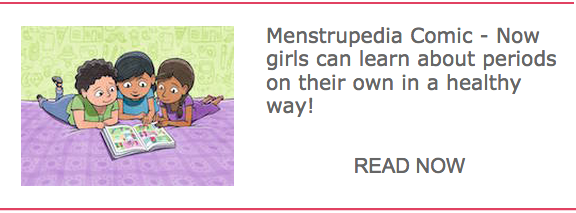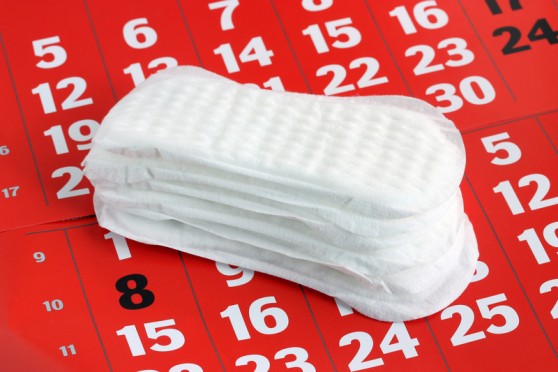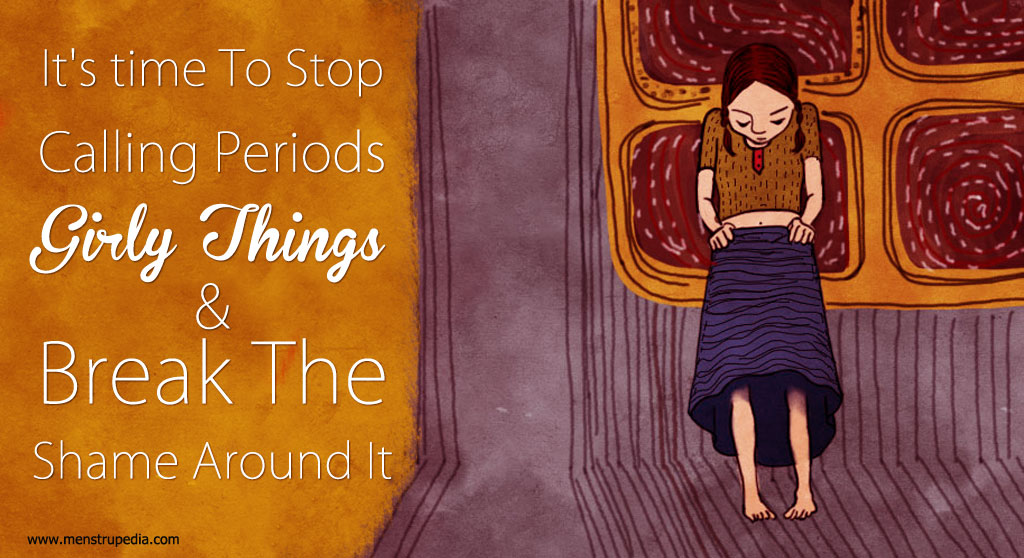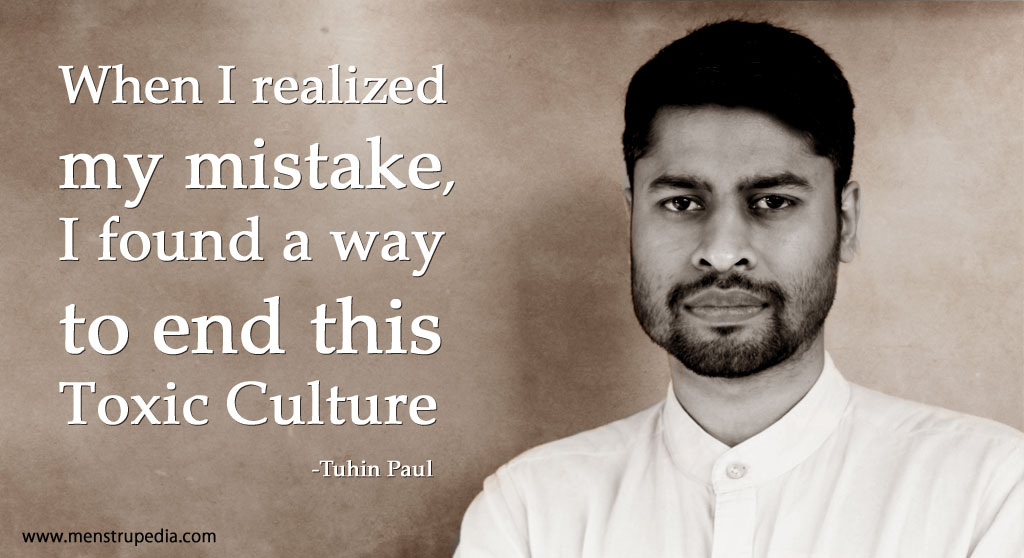“I was 11 when my grandmother told me that I could not enter the kitchen during my periods. I wondered why, given it was already quite disgusting to be conscious about blood oozing out of your body all the time, and apparently, without a visible wound. Later on, I once asked my mother about the logic behind such prohibitions. Interestingly, while she accepted that there is no valid ground for refusing women the right to perform their daily activities, she declined to resist this social diktat, as she ‘preferred’ to maintain the status quo.”
This is a very common scenario which we all are familiar with. Menstruation taboo i.e. the stigma attached to a menstruating woman is ubiquitous in all societies, till today. While the menarche i.e. the onset of periods of a girl is celebrated in our culture, the very process of it is considered to be impure. In fact, almost all the major religions of the world have similar prescriptions for women during ‘those days’. While Jewish law forbids any physical contact between males and females during the days of menstruation including “passing objects between each other, sharing a bed, sitting together on the same cushion or couch…smelling her perfume, gazing upon her clothing or listening to her song,” Christian women (mainly the Russian Orthodox sect) are denied the right to attend Church services and are often obliged to accommodate in a separate hut during periods. Although, a menstruating woman is not believed to be contagiously unclean in Islam, she is considered to be sufficiently impure for not taking part in religious functions. Moreover, the woman has to undergo a complete ‘ritual washing’ to be reckoned as ‘pure’ again. The concept of ritual washing is obligatory in Hinduism as well. In fact, menstruation is often considered to be a ‘curse’ in Hinduism. It is prescribed that a woman who is menstruating, should have a separate accommodation, separate utensils and kitchen and should not enter any place of worship. (Source)
The question is, while motherhood has been celebrated in almost all the civilizations of the world, why a process, which is intrinsically linked to the process of reproduction, has time and again made us ill at ease? If talking from the perspective of religion, blood is generally considered to be impure, hence rendering the entire process bereft of any sanctity. As a result, many women have come to believe that menstruation blood is actually polluted, which the body needs to get rid of, ending up in believing that her body is actually impure during the process. But scientifically, it is nothing more than the renewal of the walls of the uterus, (commonly known as the womb) akin to the process of cell renewal that the body is continuously undergoing. It is, in fact, precisely the process by which the body prepares itself every month for pregnancy.

Hence, it goes without saying that it is the lack of proper scientific knowledge that leads people to believe in such baseless practices. In this context, again, it would be naïve to assume that it is only the poorly educated sections of our society who are the easy victims of such a degrading practice. Instead, such social stigma is there, regardless of class, caste and education. For instance, on my visit to a friend’s place, I was completely taken aback when my friend informed me that they ‘believed’ that if any member of the household was having her periods, pickles kept for drying, will eventually rot! My inability to understand the connection between menstruation and rotting pickles and subsequent attempts of reasoning with her was in vain as she denied entertaining any scepticism on her long held conviction. Ironically, she was then doing her Masters in Science in one of the esteemed universities of the country!
Hence, the problem lies in the lack of awareness about the basic reproductive process of a woman’s body, intricacy of which is provided only after a student opts for specialized study. Moreover, sex education, in general, is believed to be impinging on the faith and culture of the country. Again, the issue is much more complicated than is apparent. This entire belief system and practice is enmeshed in shame and silence. From the prohibition of ‘such’ discussions in public, especially in front of men, to commercial advertisements of sanitary napkins where blue ink is used to represent blood, to the wrapping up of a packet of menstruation pads either in newspaper or black polythene bag while purchasing, underline how we have not only accepted this superstition but also endorsed it.
So, what needs to be done? First and foremost,one has to realize that one does not have to be a feminist to talk about ‘it’. And in this 21st century of ‘postmodern’ connections and scientific advancement, is it not imperative enough that the society should get rid of such redundant practices? I am not advocating, as some feminist scholars have, that, a woman needs to taste her own menstrual blood to be free from this patriarchal imposition [1]! Instead, it is just sufficient enough to create awareness amongst people, especially through education system. Making documentaries and radio programmes can be instrumental in reaching out to the wider public. In this regard, Sphere Origin’s television drama series titled Balika Vadhu had been bold enough to showcase the plight of a child bride when she had to face the discriminatory practice of seclusion of menstruating women for the first time. Even, Whispers’ #TouchThePickle campaign is a refreshingly innovative step in this regard. I, however, wonder whether the campaign would have been more effective if P&G had first started with the brand name itself, breaking the ‘whispers’ and ‘silence’ once and for all.
[1]-The concept has been discussed in The Female Eunuch by Germaine Greer.
This article was originally published here on Youth Ki Awaaz.







